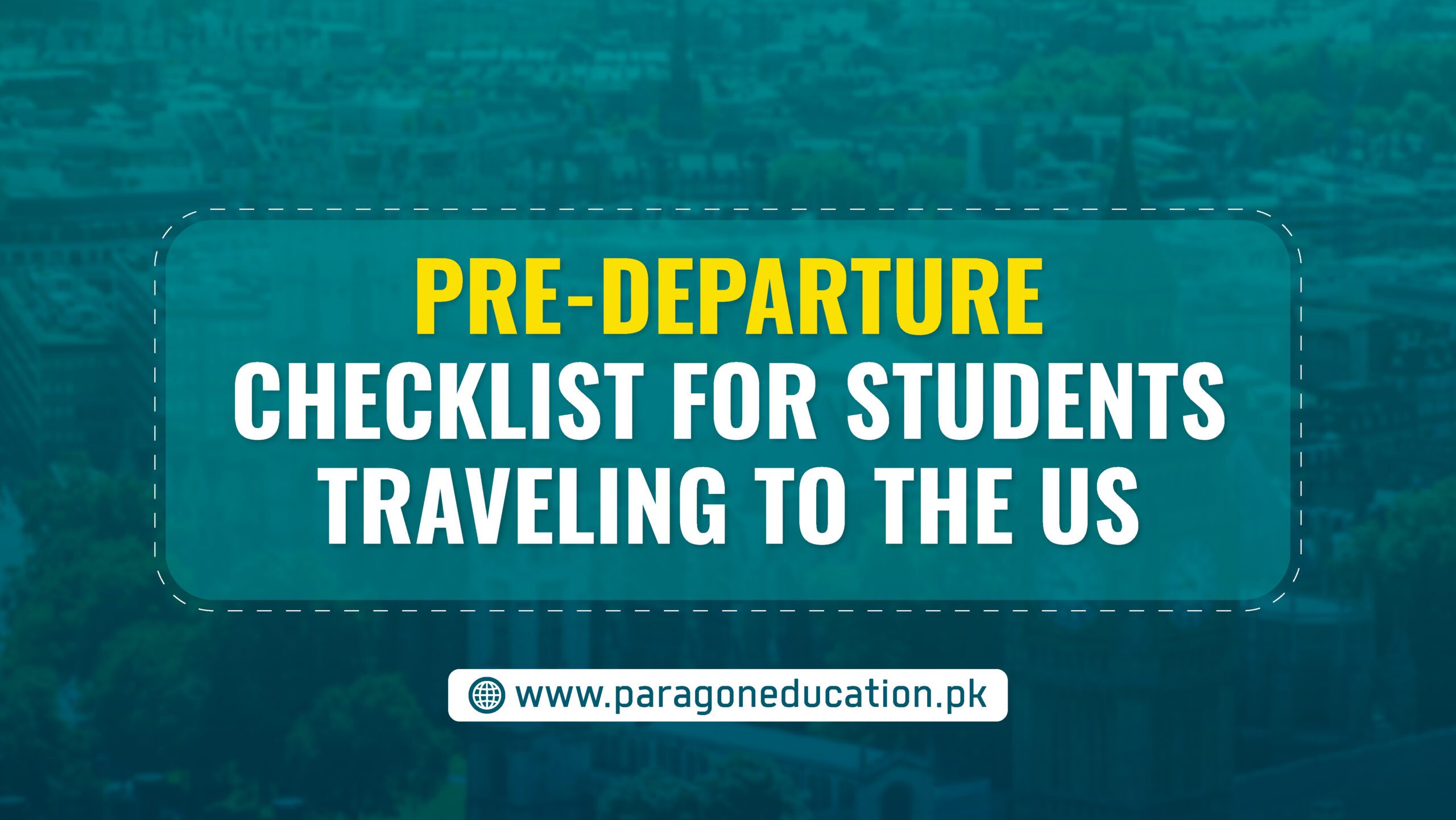As the excitement of studying in the United States builds, it’s easy to overlook the essential preparations for a smooth transition. To help you navigate this important time, we’ve created a comprehensive pre-departure checklist for students traveling to the US. This guide will ensure everything is in order before starting your new adventure.
Understanding Visa Requirements
Your adventure starts long before you walk onto the aircraft. Obtaining the appropriate visa is essential for overseas students. Here’s what you need to know:
1. Choose the Right Visa
The majority of students will require an F-1 visa, which is only needed for academic purposes. Participating in an exchange program will probably need you to obtain a J-1 visa. Make sure you’re applying for the right type by familiarising yourself with its requirements.
2. Complete the Application
Start by completing the online nonimmigrant visa application, Form DS-160. Be exact and precise because any inconsistencies could cause your procedure to drag on.
3. Pay the SEVIS Fee
The Student and Exchange Visitor Information System (SEVIS) fee must be paid before your visa interview. Please keep the receipt, as you’ll need it later.
4. Schedule and Prepare for Your Interview
Make an appointment for your visa interview at the closest US embassy or consulate after completing the application and paying the necessary cost. Obtain all necessary paperwork, such as your passport, financial statements, Form DS-160 confirmation, SEVIS fee receipt, and admission letter from the US university. Prepare a statement outlining your goals and study schedule for the US.
Travel Arrangements
Once you have your visa in hand, it’s time to make travel arrangements:
- Book Your Flight: Search for flights that fit both your budget and your trip schedule. To get the greatest bargains, try making your reservation well in advance as prices can change greatly. Compare prices by visiting several travel websites.
- Plan Your Arrival: You will require transportation from the airport to your lodging once you arrive in the US. Look into alternatives such as ridesharing services, taxis, public transport, and airport shuttles. For incoming students, some universities even provide transport services.
Financial Preparations
Managing your finances effectively will make your transition smoother:
- Budget Your Expenses: Create a budget to manage your living expenses. Consider costs such as accommodation, food, transportation, and leisure activities. Having a clear budget will help you avoid financial stress during your studies.
- Bring Sufficient Funds: Ensure you have enough money for your initial expenses until your bank account is set up. Carry a mix of cash and cards, but avoid bringing large sums of cash for security reasons.
- Understand Currency Exchange: Familiarize yourself with the current exchange rates and plan how you will exchange currency upon arrival. Some banks offer currency exchange services, or you can use ATMs to withdraw US dollars.
Packing Essentials
Packing can be both exciting and daunting. Here’s a comprehensive guide to what you should include:
1. Important Documents
Keep your passport, visa, acceptance letter, financial documents, and any other essential paperwork in a secure, easily accessible place. It’s wise to have both physical copies and digital backups stored securely online.
2. Clothing
Examine the local climate in the place you plan to study. Because the US has a wide variety of climates, prepare appropriately. To adjust to shifting weather conditions, think about layering alternatives. Since you’ll probably be walking a lot, remember to pack comfortable shoes.
3. Personal Items
Bring things that will help your new place feel cozy and welcoming. Photographs, cherished blankets, or little trinkets from your native nation can be examples of this.
4. Electronics and Chargers
If you intend to carry devices with you, such as laptops or cell phones, be sure to research the US plug types and voltage requirements. To keep your gadgets charged, you might require a universal adaptor.
5. Health and Hygiene Products
Bring the essential toiletries, but remember that most things can be bought in the US. If you have favorite brands or items, think about bringing them along.
Health and Safety Preparations
Staying healthy while studying abroad is crucial:
1. Vaccinations
Examine any immunization needs before traveling to the US. Make sure you have all the required paperwork because certain colleges may need verification of specific immunizations.
2. Medications
If you use prescription drugs, make sure you have enough with you to endure until you locate a nearby pharmacy. Having a letter from your doctor outlining your medical history and copies of your prescriptions is also beneficial.
Cultural Awareness and Local Research
Adapting to a new culture can be one of the most rewarding parts of studying abroad:
1. Learn About American Culture
Familiarize yourself with American customs, social norms, and common practices. Understanding these will help you feel more comfortable and integrated into your new environment.
2. Research Your University and Community
Investigate the groups, events, and resources offered by your university. For overseas students, several universities provide orientation programs to aid with acclimatization and socialization.
3. Connect with Other Students
Speak with other foreign students or participate in internet discussion boards. International students can find a supportive environment at many universities through student organizations designed just for them.
Conclusion
Preparing to study in the US is a significant step in your educational journey. You might feel more assured and prepared to welcome this new chapter in your life if you have a well-organized pre-departure checklist for students who want to study in USA. Make sure you’ve covered everything you need to succeed in your studies and beyond, including visa requirements, travel plans, financial planning, health considerations, and cultural understanding.





